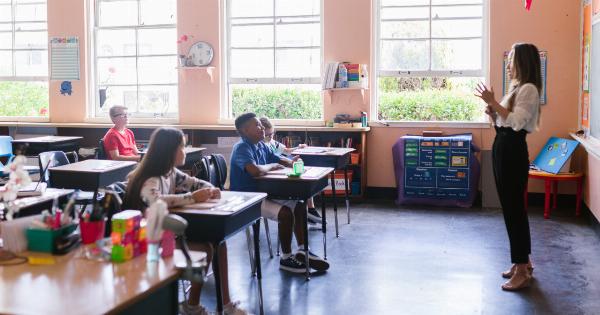Every child deserves the chance to receive an education, but unfortunately, not every child is able to attend school.
Whether it’s due to financial constraints, health issues, or other circumstances, many children are left without access to formal education. However, there are options available for families who find themselves in this situation. In this article, we’ll explore some panhellenic options for helping your child who is not enrolled in school.
Homeschooling
Homeschooling is a popular option for families who are unable to send their children to traditional schools. Homeschooling involves educating a child at home instead of sending them to a formal school setting.
Families who choose to homeschool their children have a lot of flexibility in terms of curriculum, schedule, and learning environment. Homeschooling allows parents to tailor their child’s education to their individual needs and interests. There are a lot of resources available to families interested in homeschooling, including online classes, textbooks, and support groups.
Homeschooling is legal in many countries, including Greece.
Online Learning
Online learning is another option for families who are unable to send their children to traditional schools. Online learning involves taking courses via the internet.
There are a lot of online learning platforms available that offer courses for free or for a fee. Online learning is a good option for families who live in remote areas or who have limited access to traditional schools. Online learning allows students to learn at their own pace and on their own schedule.
There are a lot of online courses available for children of all ages and skill levels.
Tutoring
Tutoring is a good option for families who want to supplement their child’s education. Tutoring involves hiring a private tutor to work with your child one-on-one.
Tutors can help with homework, teach new concepts, and provide additional support to help your child succeed academically. Tutoring can be expensive, but there are programs available that offer free tutoring services to families in need. Tutoring can be a good option for children who need extra help with a particular subject or who are struggling in school.
Co-op Schools
Co-op schools are another option for families who are unable to send their children to traditional schools. Co-op schools are cooperative schools where parents work together to educate their children.
Co-op schools can be a good option for families who want a more community-oriented approach to education. Parents work together to plan lessons, teach classes, and provide support to each other and their children. Co-op schools can be a good option for children who thrive in small, close-knit environments.
Charter Schools
Charter schools are publicly funded schools that operate independently of the traditional school system. Charter schools typically have more flexibility in terms of curriculum, schedule, and teaching methods than traditional schools.
Charter schools can be a good option for families who want more control over their child’s education. However, admission to charter schools can be competitive, and there may be long waiting lists. In Greece, there are a lot of free charter schools available that offer a variety of programs and services.
Un-schooling
Un-schooling is a form of homeschooling where children have more control over their own education. Un-schooling involves following a child’s interests and allowing them to learn in a more natural way, without a set curriculum or structure.
Un-schooling can be a good option for families who want to give their children more freedom to explore and learn on their own. However, un-schooling can be controversial and there is not a lot of research available on its effectiveness. Families who are interested in un-schooling should do their research and consult with educational experts before making a decision.
Special Education Programs
Special education programs are available for children with disabilities and special needs. Special education programs provide tailored support and accommodations to help children succeed academically.
Special education programs can be offered in traditional schools, but there are also specialized schools and programs available for children with more significant needs. Families with children who have special needs should consult with their child’s healthcare provider and school officials to explore their options for special education programs.
Community Education Programs
Community education programs are offered by local organizations and non-profits. These programs can offer a range of educational services, including tutoring, after-school programs, and enrichment activities.
Community education programs can be a good option for families who want to supplement their child’s education with additional support and resources. These programs are often free or low-cost and can be a good way to engage with the local community.
Religious Schools
Religious schools are private schools that are affiliated with a particular religion or faith. Religious schools can offer a unique learning environment that is focused on spirituality and faith-based values.
Religious schools can be a good option for families who want to integrate religious teachings into their child’s education. However, admission to religious schools can be competitive and there may be strict requirements for participation.
Families who are interested in religious schools should research their options and consult with school officials to determine if it is the right fit for their child.
Conclusion
There are a lot of options available for families who are unable to enroll their child in a traditional school setting.
Whether it’s through homeschooling, online learning, tutoring, co-op schools, charter schools, un-schooling, special education programs, community education programs, or religious schools, families can find the right fit for their child’s educational needs. It’s important for families to do their research and consult with educational experts to determine which option is best for them.
Every child deserves the chance to receive an education, and with these panhellenic options, families can help their child succeed academically, no matter what their circumstances may be.





























